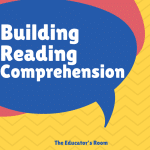This is Part 1 of a series on effective literacy instruction
Have you signed up for The Educator’s Room Daily Newsletter? Click here and support independent journalism!
My fondest memories of teaching first grade were watching my students grow as readers and feeling pure joy when they accomplished their reading goals. Every September you are given the task of instructing nonreaders. By June, they leave you as skilled readers. Some leave more advanced than others. All are on the right path for reading success.
Over the years as I taught first grade, I used different programs for phonics and reading including Wilson’s Fundations, F&P Guided Reading, Teachers College Reading & Writing Curriculum and most recently the EL Education Curriculum. These programs combined were very effective in my classroom. Some more than others, though each have their own features helpful for reading success.
I recently attended a Really Great Reading workshop which detailed their phonics curriculum, one that is based on the science of reading. In the past few years, the science of reading has been marketed as the only worthwhile component of teaching reading. My experience as a reading teacher for the past 13 years has taught me that there are several vital tools needed to ensure effective reading instruction. Explicit phonics instruction, background knowledge and guided reading are all essential for reading success. In this piece, my focus will be on the science of reading and the important role of the brain.
Reading and the Brain
As I reflected on the research that has been years in the making, I was reminded of the true complexities in learning to read. Reading is truly a science! It involves many intricate facets. The science of reading is a term that describes thirty years of research in education, psychology, linguistics, and neuroscience which proves that reading is a complex process. Research has found that many factors contribute to reading success and it begins in the human brain.
Neuroscience has indicated that our brain was not intended for reading. It was made for speech. Studies have shown that learning to read actually requires us to “rewire” our brain and the cerebral cortex plays a critical role in this process. The cerebral cortex of our brain is responsible for information processing. The cerebral cortex consists of the frontal, parietal, temporal and occipital lobes. Each has a specific function in the brain.
Learning to read is accomplished by the temporal and frontal lobes. The temporal lobe is responsible for understanding language and memory acquisition. The temporal lobe allows us to successfully acquire the skills of phonological awareness and decoding. The frontal lobe is responsible for speech production and language comprehension. The angular and supramarginal gyri connects different parts of the brain. The gyri allow us to recognize each letter shape (graphemes) as well as form words, and ultimately carry out the process of reading. Each part of the brain plays a critical role in learning to read but when does the process begin?
Reading Starts With Sounds and Letters
Language acquisition is the first step to reading and it appears in infancy. When infants hear a person speak, they are developing language and to some degree phonological awareness skills. Phonological awareness is the recognition of sound structures in words. As a child develops this awareness further expands into phonemic awareness, the ability to notice and manipulate sounds in spoken language. Phonemic awareness is a critical skill that emergent readers need when decoding words. Reading involves knowledge of both phonemes and graphemes. A phoneme is the smallest unit of sound. A phoneme matches a grapheme, a letter, or a letter combination. Scientific research shows that we gather words as phonemes. The brain does not see whole words but only letter sequences. This is critical knowledge for reading teachers and shows the need for teaching explicit phonics in reading instruction.
Knowing and understanding the structures of the brain and how it relates to reading in terms of processing sounds and letter sequences should be the basic criteria for teaching reading. Advocating for explicit phonics instruction is something that all reading teachers should rally behind.
Explicit Phonics Instruction
Phonics is defined as the science of sound. Phonics programs teach kids to connect letters to sounds. The proponents of the science of reading strongly recommend teaching explicit phonics and contend it is the major component for reading success.
There are some great programs that teach phonics and the foundational skills needed for reading success. According to EdReports.org, From Phonics to Reading and Amplify CKLA Skills are two exemplary programs. Both offer a standards and researched based synthetic approach to teaching phonics and both met expectations for precise skills taught. For example, each program offers explicit instructions in letter identification and formation; concepts of print; phonological awareness; teacher modeling and student practices.
Wilsons Fundations and Really Great Reading are also great programs that provide a multisensory approach to teaching phonics. They are similar in their concepts and both teach explicit phonics, with hands on and interactive components. For many years, I have witnessed my students use many skills acquired during our Wilsons Fundations lessons. Skills such as tapping out the sounds in each word were used daily across a multitude of subjects during the day.
Phonics provides the foundational knowledge and skills needed to independently read. Phonics enables a child to use skills to decode words. These skills stay with them as they go from nonreaders to emergent readers, and as they ultimately become independent readers. Explicit phonics instruction is crucial to reading success.
My upcoming articles will explain the importance of building background knowledge for comprehension, guided reading, individual practice, and of course a daily vocabulary-rich read-aloud. Successful reading instruction begins with a teacher who knows the science of reading. It is the foundation for the other essential components of effective literacy instruction.
Editor’s Note: If you enjoyed this article, please become a Patreon supporter by clicking here.





